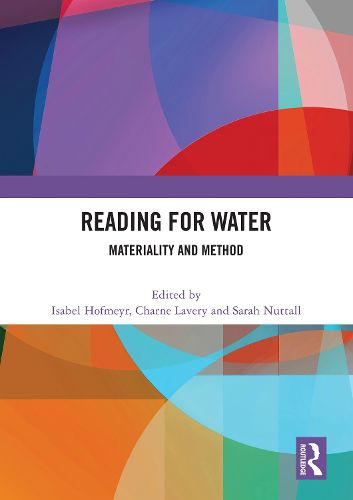Readings Newsletter
Become a Readings Member to make your shopping experience even easier.
Sign in or sign up for free!
You’re not far away from qualifying for FREE standard shipping within Australia
You’ve qualified for FREE standard shipping within Australia
The cart is loading…






An experiment in reading for water, this book offers students and teachers a toolkit of methods that follow the sensory, political and agentive power of water across literary texts.
The chapters in this book follow rivers, rain, streams, tunnels and sewers; connect atmospheric, surface and ground water; describe competing hydrological traditions and hydro-epistemologies. They propose new literary regions defined less by nation and area than by coastlines, river basins, monsoons, currents and hydro-cosmologies. Whether thinking along water courses, below the water line, or through the fall of precipitation, Reading for Water moves laterally, vertically and contrapuntally between different water-worlds and hydro-imaginaries. Addressing southern African and Caribbean texts, the collection draws on a range of elementally inclined literary approaches: critical oceanic studies, new materialisms, coastal and hydrocritical approaches, hydrocolonialism, black hydropoetics and atmospheric methods.
The chapters in this book were originally published as a special issue of Interventions.
$9.00 standard shipping within Australia
FREE standard shipping within Australia for orders over $100.00
Express & International shipping calculated at checkout
An experiment in reading for water, this book offers students and teachers a toolkit of methods that follow the sensory, political and agentive power of water across literary texts.
The chapters in this book follow rivers, rain, streams, tunnels and sewers; connect atmospheric, surface and ground water; describe competing hydrological traditions and hydro-epistemologies. They propose new literary regions defined less by nation and area than by coastlines, river basins, monsoons, currents and hydro-cosmologies. Whether thinking along water courses, below the water line, or through the fall of precipitation, Reading for Water moves laterally, vertically and contrapuntally between different water-worlds and hydro-imaginaries. Addressing southern African and Caribbean texts, the collection draws on a range of elementally inclined literary approaches: critical oceanic studies, new materialisms, coastal and hydrocritical approaches, hydrocolonialism, black hydropoetics and atmospheric methods.
The chapters in this book were originally published as a special issue of Interventions.